For the second part of his Opera Australia Mozart trilogy, Sir David McVicar ups the dramatic stakes by taking The Marriage of Figaro back to basics, revealing a melting pot of danger, sex and isolation beneath the comic surface of a world that feels terrifyingly authentic. Although we tend to think of Beaumarchais’ play and the opera that came out of it played in costumes from the era of the French Revolution, as McVicar pointed out recently that was never the case in Mozart’s time, and by setting his staging in the 1640s he skilfully heightens the tension in a downtrodden household struggling to live out its life under the thumb of the autocratic Count Almaviva. In other words, although it’s often very funny, the comedy can turn exceedingly dark at the drop of a hat.
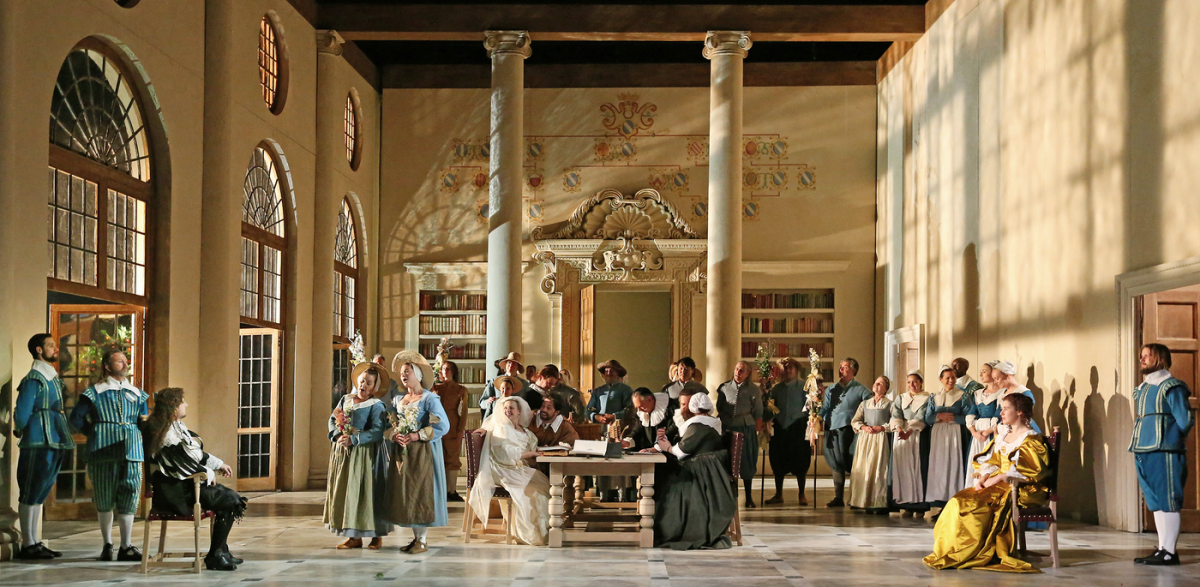
As always, the canny British director creates an entirely credible milieu within which his characters exist, in this case emphasising an upstairs downstairs world where there’s likely to be a servant (or possibly four) listening at every door and the wannabe middle-classes, men like Bartolo and Basilio, feed off those at the bottom in their efforts to please the masters. The nobs, and in this case the substantial retinue are here to maintain only two of them, either roam the palace in search of the next fumble in a corridor (him), or sit alone in enormous rooms like a bird in the world’s most sumptuous cage (her). Sex is always in the air, but it’s frequently a product of enforced boredom and inclined (like life) to be nasty, brutish and short.
Within this world of vast empty spaces, McVicar turns the spotlight on personal relationships like a scientist scrutinising a colony of ants. Figaro and Susanna, Susanna and the Countess, the Countess and Cherubino, Cherubino and Barbarina, Barbarina and the Count – each is observed, explored and considered afresh with particular reference to the bits that Da Ponte left out for politic reasons in the paranoid world of the censorious Emperor Joseph II. A moment in Act III illustrates this perfectly, when Figaro confronts the Count across the table in a moment of dangerous defiance. Here we see the furious liveried servant who used to be his own man stare down his master and say, “what right do you have that I don’t?” It’s explosive stuff and pure Beaumarchais.
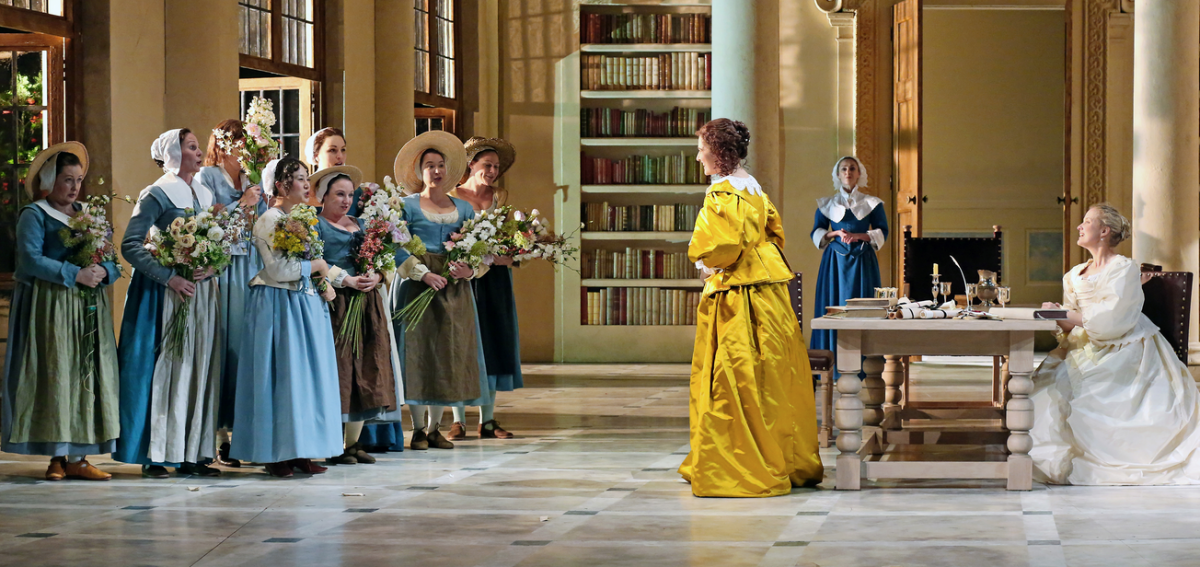
Designer Jenny Tiramani has created a sumptuous series of vaulted spaces around which these tiny folk rattle. Laden with pink and green marble and silk hangings, every room is equipped with secret doors and closets to aid the servants to appear and disappear without intruding on their masters. The costumes are ravishing: yellow and black satins for the highborn, shiny blue livery for everyone on the Count’s estate. David Finn’s atmospheric lighting emphasises the general longing for the freedom that might exist on the outside, by letting the sun shine in on characters through a series of enormous windows.
From the ‘light the-touch paper and stand back’ overture onwards, musical standards are high with Guillaume Tourniaire combining a brisk sense of the dramatic with considerable attention to detail in recitative and with sensitive decorations in the da capos. His continuo team of fortepiano and cello are a delight, with imaginative touches like a skittering on the cello when Cherubino is referred to as galloping away or a clever snippet of Rule Britannia when the Count’s trip to London gets a mention.
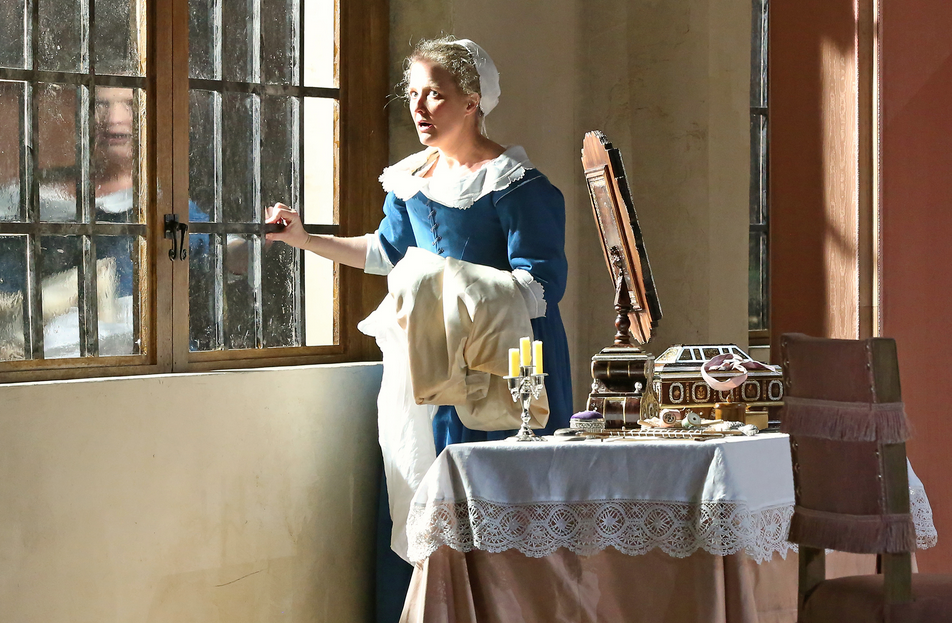
Opera Australia has assembled an excellent cast headed by Taryn Fiebig in her signature role as a feisty Susanna and Italian bass-baritone Paolo Bordogna (last season’s Turk in Italy) as a hot-headed Figaro. Fiebig is compellingly inside the role, offering a detailed reading of the character that makes her wise, sexy, practical, observant and volatile all at once. There’s a Vermeer-like calmness as well, captured beautiful still moments, like when she’s folding sheets. Her clear soprano has never sounded better, relishing the language (just watch how she inflects when referring to Marcellina’s dress sense), and sitting comfortably just where Mozart requires the voice to be. Her letter duet with the Countess and her caressingly sung Act IV aria, Deh vieni, non tardar, are absolute highlights. Chafing in the chains of his livery, Bordogna is the perfect complement, a natural comedian and showman (echoes of Rossini’s factotum), but at the same time a powder keg of a man, always on the brink of a temperamental detonation. He can do pathos as well, as evidenced in a surprisingly touching recognition scene with his long lost parents. His dark baritone is characterful with plenty of heft and his natural command of the language allows him to really let fly in the recitative. There’s a real bond between him and Fiebig giving a sense of two savvy people who could rise to the top if only social circumstance would allow it.
As Count and Countess, up and coming Ukrainian baritone Andrei Bondarenko and Nicole Car make an excellent contrast. Refreshingly young in the roles (and why not?), Bondarenko makes as convincing a sexual predator as he does a hunter, prowling his estates with his flowing locks and an occasional butchered hare in his hand. We assume he gets his end away all the time (though of course, as with Don Giovanni we only see a series of sorry failures), as he seems unable to traverse a corridor without a grope of a passing domestic. As a singer he’s world-class, clear as a bell with beautifully focussed creamy tone and a vocal virility to match his libido. His ‘jealousy’ aria is textbook. Car cuts a poignantly lonely figure, a shadow of Beaumarchais’ lively girl from Seville of three years previous. Her relationship with Cherubino is rivetingly explored, from the beautifully observed realisation that he’s more man than boy, and going as far as a brief, interrupted first kiss. Watching her watching her husband would be an evening of theatre all of its own. Vocally she’s on fine form, and if I found her stronger in robust numbers like Dove sono than in the more exposed Porgi, amor, that’s perhaps being unnecessarily picky. Her recitative is spot on, especially the telling accompanied intro to her Act III aria, and she cuts through the orchestra to land every vocal blow.
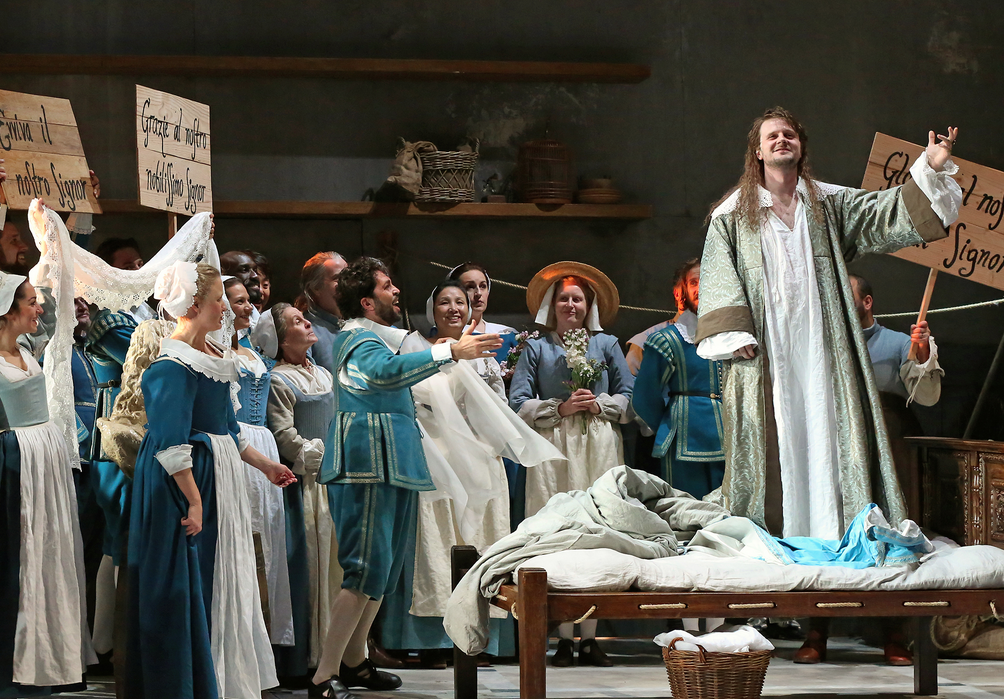
A singer very much on the rise, Anna Dowsley offers a neat Cherubino, capturing the gawkiness and insecurity of the adolescent and proving a firm audience favourite. McVicar deliciously makes Bartolo and Marcellina a pair of puritanical Rembrandts, all black bombazine and repressed sexuality. Richard Anderson, balefully regarding the missed opportunity that was his former charge, the Countess, has a more dignified edge than is often the case (despite an unexpected tumble on the bed that proves rather too much for his constitution). Jacqueline Dark makes her mark despite losing her ‘billy-goat’ aria. Buttoned up, yet gagging for it, she proves a bitter cat-fighter when crossed, yet turns out to be a decent old stick with better judgment than most when the chips are down.
The rest of the ‘household’ are equally strongly cast. A creepy pimp in black, Benjamin Rasheed is a well-enunciated snake of a Don Basilio while Graeme Macfarlane has his stammer mercifully curtailed as Don Curzio’s blood pressure goes sky high. Adrian Tamburini offers impressive vocal power and surprising gravitas as the gardener Antonio, making him less of a bumpkin than usual, as would be the case for such an important man on the Count’s estate. Eva Kong as his daughter Barbarina sings sweetly and makes an interesting micro-drama of her moment standing up to the Count.
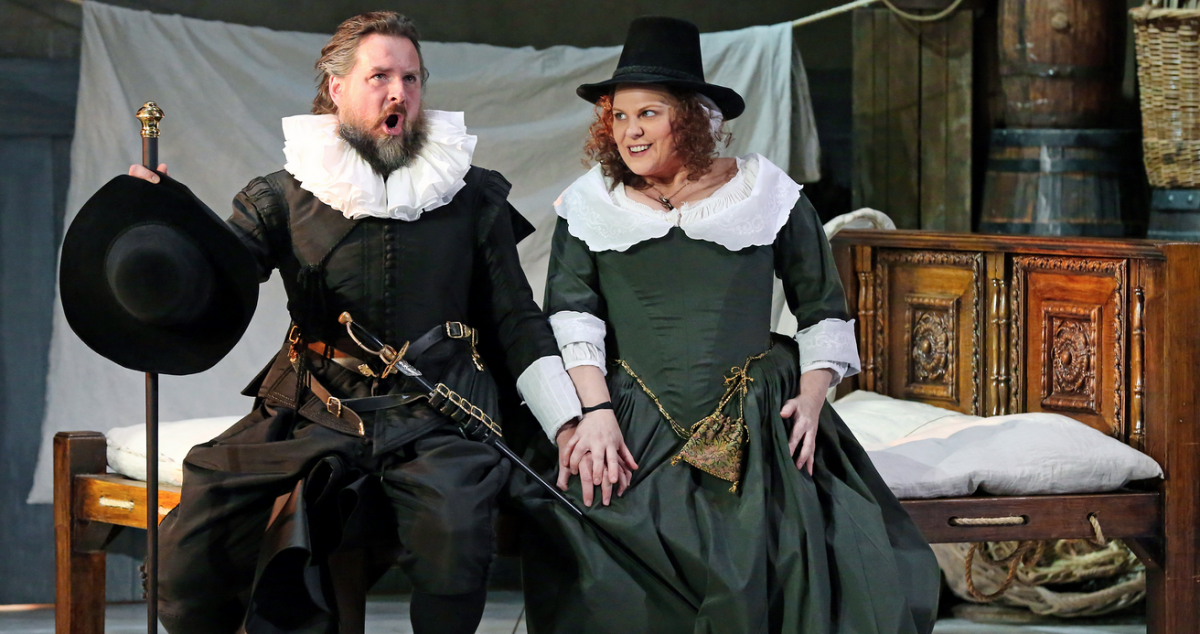
Despite the odd misfire (the gauzes might work more cleanly), this is another fine addition to Opera Australia’s repertoire, and one that should satisfyingly reveal more on second viewing. As the Countess and Cherubino’s eyes meet across the final chorus, we are left with the distinct sense that any reconciliation is likely temporary, and maybe it won’t be just the Count who strays next time. And that curiosity for what might happen next is exactly what the best productions always leave you with.
The Marriage of Figaro runs at the Sydney Opera House until August 29.












Comments
Log in to join the conversation.